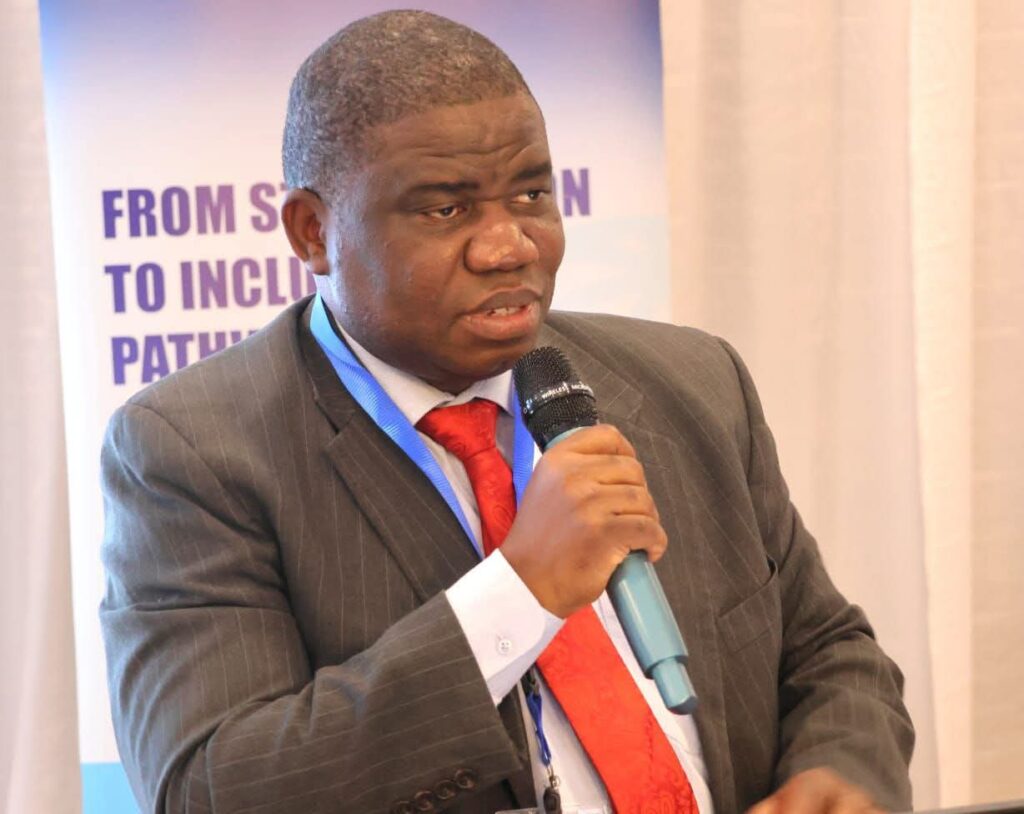By: Julius Konton
The Government of Liberia says it is shifting from economic stabilization to inclusive and private-sector driven growth, following the release of the World Bank’s latest Liberia Economic Update, which outlines key opportunities for fiscal strengthening and job creation.
Deputy Minister for Economic Management Dehpue Y. Zuo says the report validates Liberia’s reform efforts and will guide national planning for the 2026 fiscal year.
“We are doing everything within our effort as a country to sustain growth,” Zuo said. “The report will inform our planning for the Fiscal Year 2026 national budget and overall development vision”, he added.
Minister Zuo revealed that Liberia is pursuing an ambitious revenue goal of US$1 billion, signaling increased collaboration between the Ministry of Finance, the Liberia Revenue Authority, and development partners.
He emphasized that achieving this milestone requires a shift in mindset, urging citizens, businesses, and civil society to move beyond advocacy to participation.
“We used to say Liberia needs change. But change requires being a player, not a spectator in your own economy,” he asserted.
According to the World Bank, long-term job creation will rely heavily on private sector investment, not government employment.
World Bank Managing Director for Liberia, Georgia Wallen, underscored that the only sustainable way to create employment is through the private sector.
She highlighted the urgency for regulatory reforms, stronger support for SMEs, and an updated national curriculum that equips young Liberians with entrepreneurial and technical skills.
Minister Zuo announced that with World Bank support, Liberia now has an official Public-Private Partnership (PPP) policy designed to drive job creation and innovation.
“This approach not only stabilizes the economy, it opens opportunities for young people to innovate and contribute to development,” he said.
A central pillar of Liberia’s forward strategy he stated is the Domestic Resource Mobilization (DRM) Strategy 2025–2029, which focuses on: Diversifying the economy, Investing in human capital, Strengthening debt management and fiscal prudence and
Implementing reforms that address fragility and increase resilience.
The goal of DRM, according to Zuo, is simple: reduce dependency on external aid and build a self-reliant national economy.
He disclosed that World Bank Review as growth slowed, but Momentum is gradually returning
Providing statistics, he highlighted, the Country’s Economic Update notes including from 2004–2014: Liberia averaged 7% annual growth while from 2014–2023: Growth slowed to 1.4%, driven by global shocks and domestic challenges.
However, the report says ongoing reform especially in fiscal management are creating the right conditions for a growth rebound.
The report, titled “From Stabilization to Inclusion: Pathways to Resilient Growth and Productive Jobs,” he reemphasized aligns closely with President Joseph Boakai’s ARREST Agenda: Agriculture, Roads, Rule of Law, Education, Sanitation, and Tourism.
He indicated furher that both the World Bank and the Liberian government agree: Liberia now stands at a critical turning point. With fiscal discipline, private sector partnerships, and the new DRM strategy, Liberia aims to transition from short-term stabilization toward inclusive and sustained economic growth.
